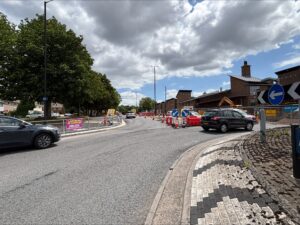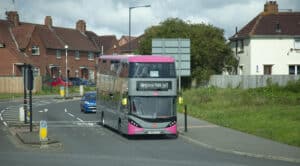
£3.5m boost for active travel across the region
£3.5m boost for active travel across the region
The West of England is set to invest a further £3.5 million in walking, cycling, and wheeling projects across the region.
A six-week consultation has been launched on proposals to improve bus, walking, wheeling (the use of a wheelchair, mobility scooter or pushchair) and cycling facilities along the A432, including Station Road in Yate and the Badminton Road (between the Stover Road junction in Yate and the Wick Wick roundabout on the A4174 Avon Ring Road).
Proposals, which will give local people greater options for travel, include:
The council wants to make walking, public transport and cycling not only viable, but the preferred way of getting around, especially for shorter journeys. The proposals will also make it easier and safer for those using a wheelchair, mobility scooter or pushchair.
The proposals for the A432 would connect with plans consulted on last year to improve walking and cycling facilities along the A4174 Avon Ring Road, enabling people to consider active travel for longer journeys like commuting to work or college.
Making alternatives to the car safer and more convenient supports the council’s Climate Emergency goal of reducing carbon emissions and helps mitigate a growing population and greater demand for limited road space.
Our proposals are about creating a safer and more pleasant environment for people who want to or need to walk, wheel or cycle. Encouraging more people out of their cars and reducing the traffic along our main roads, like the A432, will also improve the quality of life of those living in the communities along the route.
Councillor Chris Willmore, cabinet member with responsibility for transport at South Gloucestershire Council
We must make travel safer and easier for those using a wheelchair, mobility scooter or pushchair and we need to create safer environments for pedestrians and cyclists.
I am also very pleased that our proposals include the return of much-needed on-street short stay parking along Station Road to support local businesses. I would encourage people who live and work along the A432 and those who travel along it to take part in our consultation. Let us know what you think of our proposals.
The proposals for Coalpit Heath help address a number of long-standing issues and concerns local people have. For example, the new cycle lanes will help prevent HGV parking outside Sainsbury’s. Badminton Road can get very busy so the introduction of signalised crossings at key locations like outside Sainsbury’s and at the Church Road and Beesmoor Road junctions will be very welcome.
Councillor Jon Lean, local member for Frampton Cotterell ward
The proposals for the A432 will be funded by the Department for Transport (DfT) through the City Region Sustainable Transport Settlements Fund (CRSTS), administered by the West of England Combined Authority. The money available for these projects can only be used for new transport infrastructure and cannot be used for funding bus services, filling potholes or other council functions such as social services, education or libraries.
Feedback gathered through the consultation will be used to finalise designs for the improvements before a full business case and a request for funding is submitted to the West of England Combined Authority later in the year.
Further details can be found online along with a short survey. Visit www.southglos.gov.uk/a432improvements
The consultation closes on Tuesday 20 August.
Over the next six weeks a number of drop-in events will be held where members of the public can find out more and ask questions. These events will be a mixture of in-person and online.
Events include:

The West of England is set to invest a further £3.5 million in walking, cycling, and wheeling projects across the region.

Work to rebuild the southbound section of Passage Road (A4018), between Crow Lane roundabout and Charlton Road, is taking place from 14 July to 1 August 2025.

Plans to extend the metrobus m1 service in the south of the city have been given the go-ahead by members of the Transport and Connectivity Committee when they met on Thursday 10 July.
A major scheme to improve the condition and safety of roads in Congresbury begins on Monday 14 July.
Work to cut back Willow trees on Herluin Way in Weston-super-Mare begins on Tuesday 15 July.